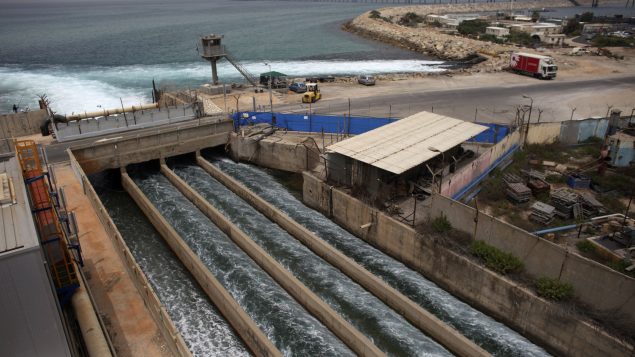
Millions of cubic metres of chemical laden brine produced daily by thousands of desalination plants worldwide threaten marine environments and ecosystems, according to a new UN study conducted in Canada.
Globally desalination plants discharge about 142 million litres of hypersaline brine every day, producing in one year enough of the sludgy by-product of our thirst for fresh water to cover the entire state of Florida under one foot (30.5cm) of brine, says Prof Manzoor Qadir the Canadian-based Institute for Water, Environment and Health, part of UN University system.
And the problem is expected to grow as the number of desalination plants around the world increases, Qadir, the principal author of the study, said in an interview with Radio Canada International.
“We know there will be more and more desalination plants, those will be emerging because of the increasing levels of water scarcity in different parts of the world,” Qadir said.
(click to listen to the full interview with Prof Manzoor Qadir)

Brine water flows into the Mediterranean Sea after passing through a desalination plant in the coastal city of Hadera May 16, 2010. (Nir Elias/REUTERS)
The study, which was conducted in conjunction with Wageningen University in the The Netherlands and the Gwangju Institute of Science and technology in South Korea, found that nearly 55 per cent of global brine is produced in four countries.
Saudi Arabia accounts for 22 per cent, United Arab Emirates 20.2 per cent, Kuwait for 6.6 per cent and Qatar for 5.8 per cent.
The brine greatly increases the salinity of seawater in the areas where it’s discharged, polluting oceans with toxic chemicals used in the desalination process, Qadir said.
It also depletes oxygen levels in receiving waters, the study showed.
However, the study also shows that this brine could be used to create environmentally friendly and sustainable economic opportunities to farm salt-tolerant fish species, to generate electricity, and by mining it for salts and minerals, including magnesium, gypsum, sodium chloride, calcium, potassium, chlorine, bromine and lithium.
“For example, studies have shown that the fish yield by using that brine is further increased rather than being negatively affected,”Qadir said. “But these are the studies, which have been done on a pilot scale, the key issue would be if we translate those studies on a larger scale.”


